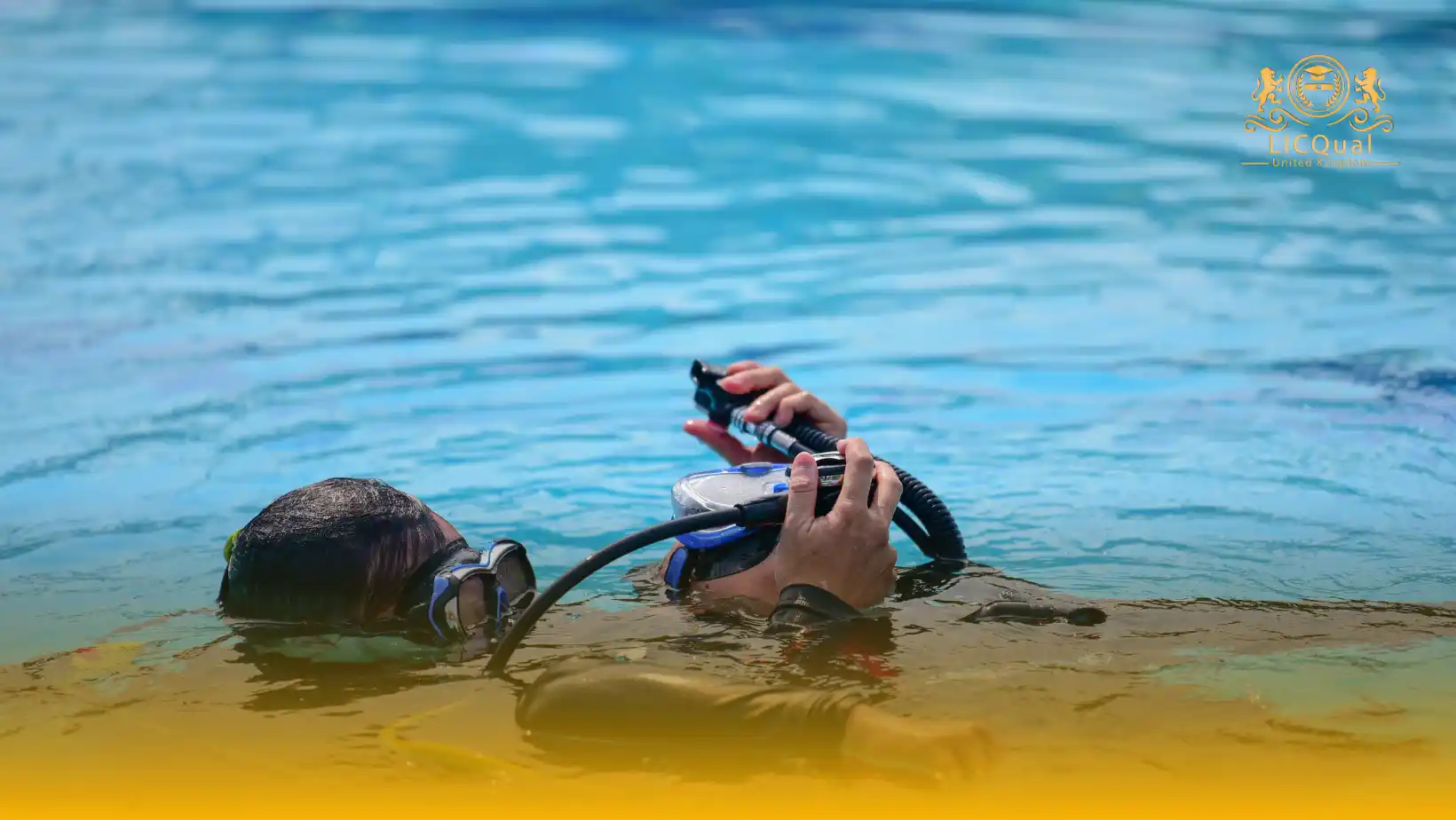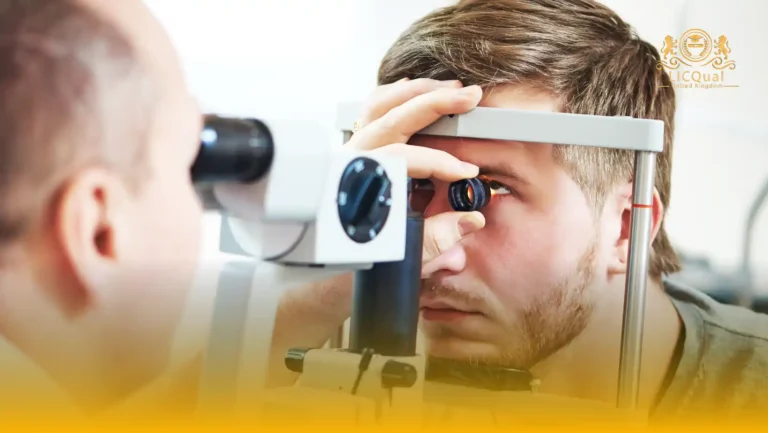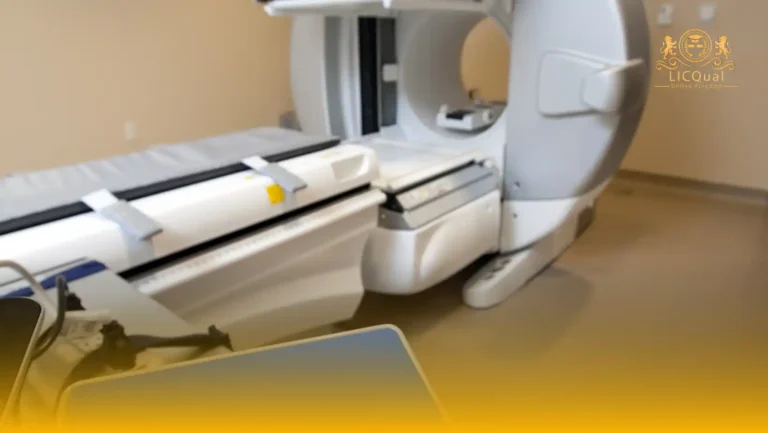The LICQual Level 3 Diploma in Aquatic Therapy Pool Rescue (ATPR) is a specialized qualification designed to equip professionals working in aquatic therapy environments with critical rescue skills tailored to the unique challenges of therapy pools. Recognized internationally, this diploma ensures candidates can effectively manage emergencies, safeguarding clients and staff within therapeutic aquatic settings.
Aquatic therapy pools differ significantly from traditional swimming pools due to their specific uses, often involving individuals with limited mobility or special health needs. This course focuses on the prevention, risk assessment, and rescue techniques suitable for these environments, integrating safety protocols with therapeutic practices. Candidates will learn how to respond calmly and efficiently to emergencies while maintaining the therapeutic atmosphere essential for client wellbeing.
Aligned with global safety standards, the LICQual ATPR diploma provides a blend of theoretical knowledge and practical skills. It covers hazard identification, emergency response, rescue equipment handling, and first aid procedures specific to therapy pools. Graduates will be confident in executing rescue operations while minimizing disruption to therapy sessions and ensuring compliance with health and safety regulations.
Ideal for aquatic therapists, pool attendants, rehabilitation specialists, and healthcare professionals involved in aquatic therapy, this qualification enhances safety standards and emergency preparedness within therapy pool environments. Whether you’re seeking to improve your professional competence or fulfill regulatory requirements, the LICQual Level 3 Diploma in Aquatic Therapy Pool Rescue offers the expertise necessary to protect lives and promote safe aquatic therapy practices.
Course Overview
Qualification Title
LICQual Level 3 Diploma in Aquatic Therapy Pool Rescue (ATPR)
Total Units
6
Total Credits
60
GLH
240
Qualification #
LICQ2200624
Qualification Specification
To enroll in the LICQual Level 3 Diploma in Aquatic Therapy Pool Rescue (ATPR), applicants must meet the following criteria:
|
Qualification# |
Unit Title |
Credits |
GLH |
|---|---|---|---|
|
LICQ2200624-1 |
Introduction to Aquatic Therapy Pool Environments |
10 |
40 |
|
LICQ2200624-2 |
Risk Assessment and Hazard Management in Therapy Pools |
10 |
40 |
|
LICQ2200624-3 |
Rescue Techniques for Aquatic Therapy Pools |
10 |
40 |
|
LICQ2200624-4 |
Emergency Response and First Aid in Therapeutic Aquatic Settings |
10 |
40 |
|
LICQ2200624-5 |
Communication and Team Coordination during Rescue Operations |
10 |
40 |
|
LICQ2200624-6 |
Health, Safety, and Legal Compliance in Aquatic Therapy Rescue |
10 |
40 |
By the end of this course, learners will be able to:
1. Introduction to Aquatic Therapy Pool Environments
By the end of this unit, learners will be able to:
- Describe the unique features and purposes of aquatic therapy pools.
- Understand the specific needs and limitations of therapy pool users.
- Recognize the challenges and safety considerations associated with therapeutic aquatic settings.
2. Risk Assessment and Hazard Management in Therapy Pools
By the end of this unit, learners will be able to:
- Identify potential hazards specific to aquatic therapy pools.
- Conduct risk assessments tailored to therapy pool environments.
- Develop and implement effective hazard control strategies to ensure client and staff safety.
3. Rescue Techniques for Aquatic Therapy Pools
By the end of this unit, learners will be able to:
- Demonstrate appropriate rescue techniques adapted for aquatic therapy pools.
- Perform safe and effective casualty approaches, supports, and removals considering client mobility limitations.
- Use rescue equipment effectively within the constraints of therapy pool settings.
4. Emergency Response and First Aid in Therapeutic Aquatic Settings
By the end of this unit, learners will be able to:
- Provide immediate first aid care suitable for injuries or medical emergencies in therapy pools.
- Perform CPR and use automated external defibrillators (AED) when necessary.
- Stabilize casualties and manage emergency situations with sensitivity to therapy pool environments.
5. Communication and Team Coordination during Rescue Operations
By the end of this unit, learners will be able to:
- Communicate effectively with clients, team members, and emergency responders during rescue incidents.
- Coordinate roles and responsibilities to optimize rescue efforts in therapy pool contexts.
- Document and report incidents in compliance with organizational protocols.
6. Health, Safety, and Legal Compliance in Aquatic Therapy Rescue
By the end of this unit, learners will be able to:
- Understand and apply relevant health and safety legislation related to aquatic therapy pools.
- Comply with professional ethical standards and organizational policies.
- Promote a culture of safety and continuous improvement within therapeutic aquatic settings.
This LICQual Level 3 Diploma in Aquatic Therapy Pool Rescue (ATPR) Pool Rescue is ideal for professionals and individuals who want to enhance their aquatic safety skills, gain a nationally recognized qualification, and confidently handle poolside emergencies in therapeutic and recreational settings.
1. Aquatic Therapists
- Strengthen professional credentials with a Level 3 nationally recognized qualification
- Gain practical skills for pool rescue in therapeutic environments
- Improve confidence when supervising patients during sessions
- Learn emergency response strategies specific to aquatic therapy
- Enhance patient safety and reduce risks in water-based therapy
- Apply rescue techniques directly in daily practice
2. Swimming Instructors
- Expand knowledge in pool rescue and emergency response
- Gain Level 3 certification recognized in aquatic therapy and instruction
- Learn to supervise mixed-ability swimmers safely
- Build confidence in managing emergencies during lessons
- Improve career prospects in both therapy and teaching
- Develop skills to prevent accidents in pool environments
3. Lifeguards and Aquatic Staff
- Acquire advanced pool rescue skills for therapeutic settings
- Gain hands-on experience in realistic emergency scenarios
- Learn preventative measures to reduce risks in aquatic facilities
- Enhance emergency response speed and effectiveness
- Meet industry standards for professional aquatic safety
- Prepare for higher-level aquatic safety qualifications
4. New Graduates or Career Changers
- Fast-track entry into aquatic therapy or swimming instruction careers
- Gain recognized certification to improve employability
- Build practical and theoretical knowledge in pool rescue
- Develop confidence in handling aquatic emergencies
- Strengthen professional profile in the therapy and swimming industries
- Learn critical decision-making skills in water safety scenarios
5. Rehabilitation and Fitness Professionals
- Integrate aquatic safety into therapy and fitness programs
- Learn rescue techniques for clients with limited mobility
- Ensure patient safety during aquatic exercises
- Improve supervision and risk management in pool settings
- Enhance client confidence and program effectiveness
- Gain credibility as a certified aquatic therapy professional
6. Community and Recreational Program Leaders
- Ensure safety in community swimming and therapy programs
- Train volunteers and junior staff in aquatic rescue techniques
- Implement effective emergency response protocols
- Supervise groups safely and confidently
- Promote water safety awareness in local communities
- Meet local and national safety compliance standards
7. Competitive Swimming and Therapy Coaches
- Apply rescue techniques during high-intensity training and therapy
- Identify and prevent potential risks in pool environments
- Improve supervision during competitive or therapeutic sessions
- Gain hands-on skills for emergency planning and execution
- Enhance professional recognition as a certified ATPR instructor
- Maintain the highest standards of safety for swimmers and patients
Assessment and Verification
All units within this qualification are subject to internal assessment by the approved centre and external verification by LICQual. The qualification follows a criterion-referenced assessment approach, ensuring that learners meet all specified learning outcomes.
To achieve a ‘Pass’ in any unit, learners must provide valid, sufficient, and authentic evidence demonstrating their attainment of all learning outcomes and compliance with the prescribed assessment criteria. The Assessor is responsible for evaluating the evidence and determining whether the learner has successfully met the required standards.
Assessors must maintain a clear and comprehensive audit trail, documenting the basis for their assessment decisions to ensure transparency, consistency, and compliance with quality assurance requirements.







